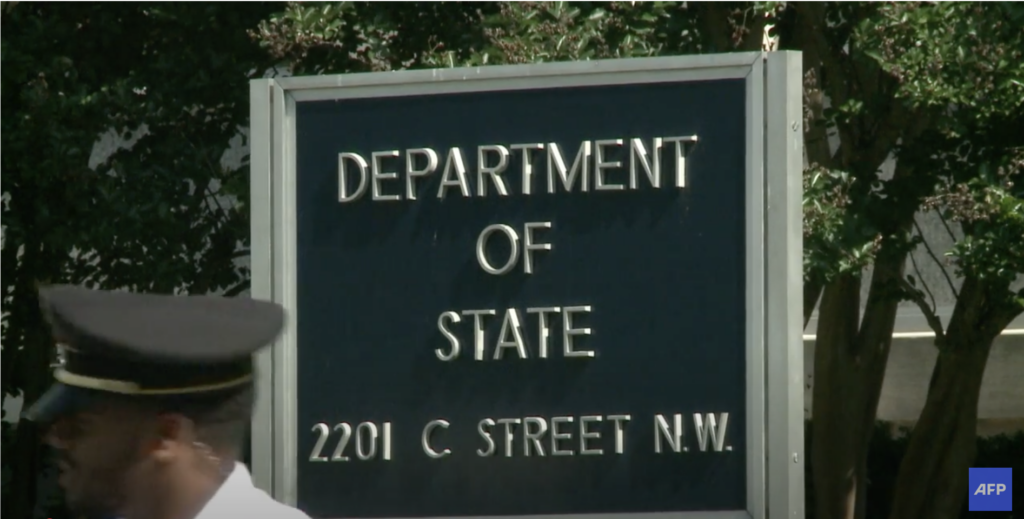How Will Anyone Trust The Georgia Runoff Results When There’s Enough Illegal Voting To Tip The Scales?
Initial data from the November 2022 general election indicates more than 25,000 Georgians may have voted illegally in the general election. And the problem appears poised to repeat itself when voters cast their ballots in the state’s runoff election for senator on Dec. 6, 2022. Absent a win by a substantial margin by either Republican challenger Herschel Walker or Democrat incumbent Sen. Raphael Warnock, litigation, with the potential ordering of a new election, seems likely — a scenario that would have proved disastrous to the country had control of the Senate remained in play.
In a complaint filed earlier this month with the Georgia State Board of Elections, Mark Davis, an expert in voter data analytics and residency issues, alerted the state to data indicating that in both November 2020 and November 2022, thousands of Georgians may have voted illegally by moving but then, rather than re-registering to vote as required by the state’s election code, casting ballots in the county in which they no longer resided. Davis’s complaint noted that due to space constraints, he was providing his supporting data in a detailed letter to State Board of Elections member Ed Lindsey.
That letter, obtained exclusively by The Federalist, highlighted the relevant portions of the Georgia election code and specifically OCGA 21-2-216(a)(4), which provides that “no person shall vote in any primary or election held in this state unless such person shall be, ‘a resident of this state and of the county or municipality in which he or she seeks to vote.’” The election code further provides that if a voter changes his residence from one Georgia county to another county more than 30 days before the election, the person has lost his “eligibility to vote” in the county of his or her old residence. To vote, then, the individual “must register to vote in [his or her] new county or residence.” And if the individual fails to “register to vote by the deadline,” he or she “cannot vote in that particular election.”
Davis then detailed data he had gathered related to the November 2022 election. Data obtained from the National Change of Address database showed 637,456 Georgians provided notice of permanent changes of address. About 168,000 of the 637,456 change of address notices were for voters who moved from one Georgia county to another more than 30 days before the election but failed to re-register there. “Over 25,000 of them appear to have voted in the 2022 general election in their old counties,” Davis wrote.
Not all of the 25,000-plus Georgians who moved and then voted in their old county necessarily voted illegally. Rather, as Davis explained, some of those individuals “may be students away at school, or soldiers serving a tour of duty, or other people who had reason to file a permanent change of address for what was in reality a long-term temporary move.”
Yet data collected by Davis from the November 2020 general election indicates that at least 35 percent of the approximately 35,000 people who moved from one Georgia county to another county in the state and voted in their prior county had, in fact, moved permanently. In fact, the number of potentially illegal votes from November 2020 — 12,400 — exceeded Joe Biden’s margin of victory over Trump in Georgia.
With the same scenario repeating itself during the last two general elections in Georgia, a reoccurrence of out-of-county illegal voting in next week’s runoff election seems likely. And while the number of potentially illegal votes in the November 2022 general election hovered around 25,000, as many as 168,000 Georgians moved to a new county and failed to re-register to vote. An additional 270,000-plus reported moves to another state yet remained registered to vote in Georgia, with more than 4,200 individuals voting in Georgia in the 2022 general election. These figures allow for the possibility that 100,000 or more illegal votes could be cast during the runoff election.
Given how tight the Warnock-Walker race currently tracks, it wouldn’t be surprising to see the number of potentially illegal votes surpassing the margin of victory in the runoff. And “under Georgia law, a judge can order an election be redone if he or she sees there were enough illegal, irregular, or improperly rejected votes to cast the results of the election in doubt.” Georgia law also allows a judge to order a new election if there is evidence of “systemic irregularities” in the election — something that would arguably exist if evidence shows there was widespread illegal voting by non-residents or by Georgia residents who cast their vote in violation of the state election code.
When the final tally comes in for the Georgia runoff election, absent a blow-out, the country should expect the candidate behind in the count to take to the courts. Should the margin of victory be minuscule, say in the hundreds or low thousands, the battle will be intense, with a cacophony of competing charges of “election denialism” and “stealing the election” drowning out reasoned discourse. And given the politicization of the judicial branch, the court’s verdict will not end the dispute.
Had the Democrats not already obtained control of the Senate, a heated battle in Georgia would drag in the entire country. That less than three weeks ago it appeared the outcome of a Georgia runoff would determine control of the Senate should jolt Americans to the disaster awaiting the country given the continuing lack of election integrity: an election dispute that leaves the question of what party controls Congress to a judge. No matter the decision, half the country will believe the election was stolen. Now, reimagine the presidency is at stake.
“Little can undermine democracy more than a widespread belief among the people that elections are neither fair nor legitimate.” That is not some ponderings of “extreme MAGA” but what the bipartisan Jimmy Carter commission concluded in its “Building Confidence in U.S. Elections,” report. The commission continued: “If elections are defective, the entire democratic system is at risk”; confidence in elections matters equally, and in fact “is central to our nation’s democracy.”
The 2020 general election saw every problem identified in the “Building Confidence in U.S. Elections” play out. And the 2022 midterms, and especially the chaos in Arizona, prove that defective elections remain a problem.
But it is Georgia, which after the 2020 election passed laws to restore election integrity, that illustrates the depth of the problems, providing the country a portal to see how dire things could become if control of the Senate (or White House) were at stake. They aren’t, though, which is why now is the time for Americans to demand our leaders fix our broken election system because “elections are too tight and the populace too divided for ‘close enough for government work’ to cut it anymore.”
" Conservative News Daily does not always share or support the views and opinions expressed here; they are just those of the writer."





Now loading...